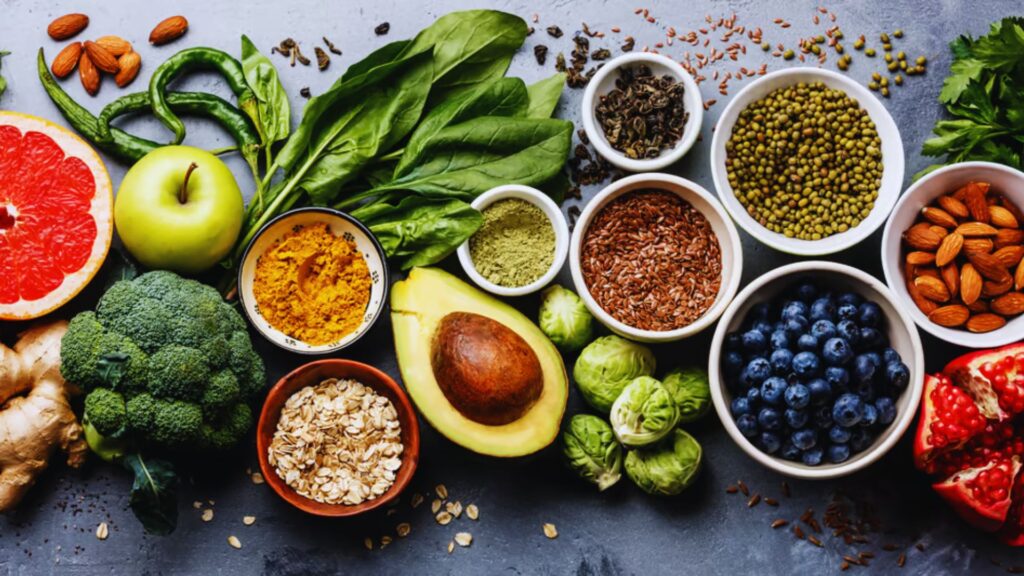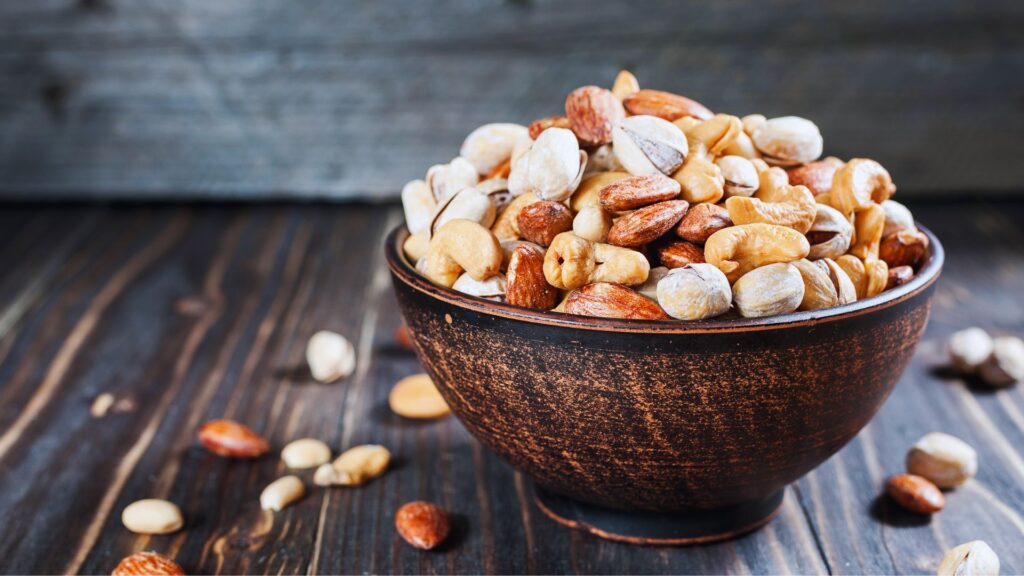
Winter can bring a host of challenges for our bodies, including sluggish digestion, a weakened immune system, and seasonal mood changes. However, the right diet can play a significant role in combating these issues, keeping your gut healthy and your mind balanced. Incorporating nutrient-rich winter foods into your daily meals can help improve digestion, support mental well-being, and enhance overall health. Here’s a guide to the best winter foods for better digestion and a healthy mind, along with tips on how to include them in your diet.
1. Warm Soups and Broths
Why They Help: Soups and broths are easy to digest and provide warmth, which is essential during winter. They are hydrating and rich in nutrients when made with vegetables, spices, or bone broth.
For Digestion: Warm liquids stimulate digestion and soothe the stomach lining, making soups ideal for those prone to indigestion. Broths made with bones are also rich in gelatin, which supports gut health.
For Mental Health: The comforting nature of soup has a psychological benefit, offering a sense of warmth and calm during cold, gloomy days.
How to Include:
- Opt for vegetable soups with ingredients like carrots, celery, and spinach.
- Add spices like ginger, turmeric, and black pepper for enhanced flavour and digestive benefits.
2. Fermented Foods
Why They Help: Fermented foods like yoghurt, kefir, kimchi, and sauerkraut are rich in probiotics, which promote healthy gut flora.
For Digestion: Probiotics improve digestion by enhancing the balance of good bacteria in the gut. They can help alleviate bloating, gas, and constipation, which are common in winter due to reduced physical activity.
For Mental Health: Gut health is closely linked to brain health through the gut-brain axis. A healthy gut microbiome can positively impact mood, reduce anxiety, and improve overall mental well-being.
How to Include:
- Start your day with a bowl of yoghurt topped with seasonal fruits and nuts.
- Add a spoonful of kimchi or sauerkraut as a side to your meals.
3. Seasonal Root Vegetables
Why They Help: Root vegetables like carrots, sweet potatoes, beets, and turnips are nutrient-dense and easy to digest. They are high in fibre, which supports gut health.
For Digestion: Their natural fibre content aids in maintaining a healthy digestive system by promoting regular bowel movements and feeding good gut bacteria.
For Mental Health: Rich in antioxidants, vitamins, and minerals, root vegetables help reduce inflammation, which is beneficial for brain function and mood regulation.
How to Include:
- Roast root vegetables with olive oil and your favourite spices.
- Add them to stews, soups, or casseroles for a hearty winter meal.
4. Warm Spices
Why They Help: Spices like ginger, turmeric, cinnamon, and cloves are not only flavorful but also packed with digestive and mental health benefits.
For Digestion: Ginger soothes the stomach and enhances digestive enzyme activity, while turmeric reduces inflammation in the digestive tract. Cinnamon aids in balancing blood sugar levels, which supports overall digestion.
For Mental Health: Warm spices like turmeric and cinnamon have mood-boosting properties due to their anti-inflammatory and antioxidant effects, which support brain health.
How to Include:
- Add cinnamon to your morning oatmeal or hot beverages.
- Use turmeric and ginger in soups, teas, or golden milk.
5. Nuts and Seeds

Why They Help: Nuts like almonds, walnuts, and seeds such as flaxseeds and chia seeds are nutrient powerhouses, providing healthy fats, fibre, and protein.
For Digestion: The fibre in nuts and seeds supports healthy digestion, while their omega-3 fatty acids help reduce inflammation in the gut.
For Mental Health: Walnuts and flaxseeds, in particular, are high in omega-3s, which support brain health and improve mood. Magnesium in almonds also helps combat stress.
How to Include:
- Snack on a handful of mixed nuts and seeds.
- Add chia seeds or flaxseeds to smoothies, yoghurt, or baked goods.
6. Whole Grains
Why They Help: Whole grains like oats, quinoa, and brown rice are rich in fibre and complex carbohydrates, which are essential for energy and digestion.
For Digestion: Fiber in whole grains helps maintain regular bowel movements and supports gut health by feeding beneficial bacteria.
For Mental Health: Complex carbohydrates in whole grains boost serotonin production, which is a neurotransmitter that regulates mood and promotes relaxation.
How to Include:
- Start your day with a warm bowl of oatmeal topped with fruits and honey.
- Use quinoa or brown rice as a base for hearty winter salads or grain bowls.
7. Citrus Fruits
Why They Help: Citrus fruits like oranges, grapefruits, and lemons are high in vitamin C, which supports overall health and boosts digestion.
For Digestion: Vitamin C aids in the absorption of iron and helps the body break down fats, improving digestive efficiency. Their natural acidity also stimulates digestive enzymes.
For Mental Health: Citrus fruits are mood boosters, thanks to their fresh aroma and high vitamin C content, which combats stress and fatigue.
How to Include:
- Add fresh citrus slices to salads or warm teas.
- Use lemon juice as a dressing or garnish for your meals.
8. Dark Leafy Greens
Why They Help: Leafy greens like spinach, kale, and Swiss chard are rich in fibre, antioxidants, and essential vitamins like A, C, and K.
For Digestion: The high fibre content in greens helps promote healthy digestion and prevents constipation. They also contain magnesium, which is essential for muscle relaxation, including the digestive tract.
For Mental Health: Leafy greens are rich in folate, which supports serotonin production and helps maintain a balanced mood.
How to Include:
- Sauté greens with garlic and olive oil as a side dish.
- Add them to soups, stews, or smoothies for a nutrient boost.
9. Herbal Teas
Why They Help: Herbal teas like chamomile, peppermint, and fennel are soothing and promote both digestion and relaxation.
For Digestion: Chamomile helps reduce bloating and gas, while peppermint tea soothes the digestive tract. Fennel tea aids in reducing indigestion and enhancing gut function.
For Mental Health: The calming properties of herbal teas can reduce stress and promote better sleep, which are crucial for mental well-being.
How to Include:
- Enjoy a warm cup of herbal tea after meals to aid digestion.
- Sip chamomile tea before bedtime for relaxation.
10. Dark Chocolate

Why It Helps: Dark chocolate with at least 70% cocoa is rich in antioxidants and mood-enhancing compounds.
For Digestion: Dark chocolate contains prebiotics, which feed good gut bacteria and improve digestive health.
For Mental Health: The magnesium and flavonoids in dark chocolate can improve mood, reduce stress, and enhance cognitive function.
How to Include:
- Enjoy a small piece of dark chocolate as an occasional treat.
- Use it as a topping for oatmeal, yoghurt, or smoothies.
Conclusion
Winter doesn’t have to take a toll on your digestion or mental well-being. By incorporating these nutrient-dense winter foods into your diet, you can promote a healthy gut, enhance mood, and stay energized throughout the season. Focus on warm, wholesome meals and foods rich in fibre, healthy fats, antioxidants, and mood-boosting nutrients to nourish both your body and mind.






















Leave a Reply